Exam success for Palestinian patient despite barriers to accessing essential healthcare
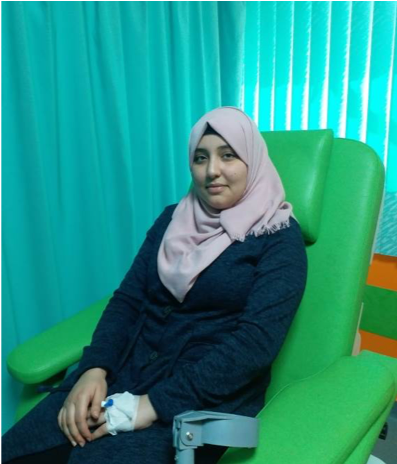 Asrar, from Jabalia in the north of Gaza Strip, was diagnosed with a bone cancer called an osteosarcoma in her left lower leg in April 2018. She required radiotherapy, only available outside the Gaza Strip. From October 2018, Asrar attended Tel Hashomer Hospital, east of Jaffa, where she underwent extensive investigations, amputation of her leg, radiotherapy and chemotherapy, as well as subsequent physiotherapy to prepare her for use of her new artificial limb.
Asrar, from Jabalia in the north of Gaza Strip, was diagnosed with a bone cancer called an osteosarcoma in her left lower leg in April 2018. She required radiotherapy, only available outside the Gaza Strip. From October 2018, Asrar attended Tel Hashomer Hospital, east of Jaffa, where she underwent extensive investigations, amputation of her leg, radiotherapy and chemotherapy, as well as subsequent physiotherapy to prepare her for use of her new artificial limb.
She continued to receive follow up at Tel Hashomer Hospital until February this year. After the start of the COVID-19 outbreak and limitations on movements, a local alternative for a selection of chemotherapy patients was established at Al-Haya Specialized Hospital in Gaza City. The centre began provision of a limited chemotherapy service on 21 April 2020, but is not equipped to replace the multidisciplinary and specialized services available at major Palestinian cancer referral centres.
Asrar was happy to receive care closer to home, but she missed the support of the multidisciplinary team that previously managed her care. Asrar said, “My aunt accompanied me at Tel-Hashomer but actually she did not have to do a lot in terms of care, because the health staff there do a lot for the patients, and they took care of me with respect. Even though I was far away from my family, I received good care and my family kept in touch with me every day by phone.”
In July, Asrar successfully completed her high school (tawjihi) exams and her family celebrated her success. Asrar’s father commented,
“She succeeded despite all the difficult circumstances and the long periods of treatment in and outside Gaza. I’m so proud of her and I hope she achieves all her dreams!”
Now Asrar is planning to study Information Technology (IT) at Al Quds (Jerusalem) Open University. She said, “I think that this area of study would accommodate my current state of health, because it depends more on mental than physical ability.”
Currently there are severe barriers to access for patients requiring exit from the Gaza Strip for essential health services. The escalating numbers of COVID-19 cases in the West Bank and Israel mean continued restrictions on referrals and movement, while the end to coordination between Palestinian and Israeli authorities and of referrals to Israeli institutions have added difficulties to the already cumbersome and arbitrary permits process.
WHO is working with authorities for the protection of Gaza patients and for promoting their unhindered access to essential health services, even in the context of COVID-19.
6-year-old Manal returns to the Gaza Strip after being unable to cross to Jordan for treatment
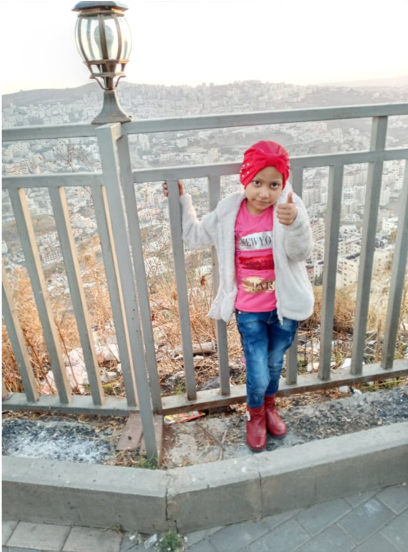 Manal is a 6-year-old girl from Jabalia refugee camp in the north of the Gaza Strip. She had surgery back in July 2019 to remove a type of cancer called a neuroblastoma. Afterwards, she needed intensive chemotherapy only available outside the Gaza Strip and had to apply for Israeli-issued permits to exit for treatment.
Manal is a 6-year-old girl from Jabalia refugee camp in the north of the Gaza Strip. She had surgery back in July 2019 to remove a type of cancer called a neuroblastoma. Afterwards, she needed intensive chemotherapy only available outside the Gaza Strip and had to apply for Israeli-issued permits to exit for treatment.
She received her initial treatment at An-Najah Hospital in Nablus, in the north of the West Bank. However, afterwards she required bone marrow transplant, a procedure not offered in any Palestinian hospital. She was referred to to the King Hussein Cancer Center in Amman, with an appointment in March 2020. However, after the outbreak of COVID-19, the Jordanian border closed and Manal and her aunt were unable to reach Jordan. They remained in hospital accommodation in Nablus, with Manal in and out of hospital because of her health during their wait.
Manal had continued to receive chemotherapy treatment at An-Najah Hospital in Nablus, but she and her aunt were never able to cross the border to Jordan for her bone marrow transplant. After more than four months of waiting, the doctors advised for Manal to return to Gaza. She and her aunt reached the Gaza Strip on 30 June 2020 and went into quarantine at the Turkish Hospital for 21 days. Manal’s father commented, “Manal’s treatment was delayed for months, and her situation is critical. She needs a bone marrow transplant, and we appeal to any organizations that can help us to save Manal’s life.”
The European Union and WHO deliver vital medical supplies to East Jerusalem hospitals for COVID-19 response
June 17 2020, Jerusalem – A substantial delivery of personal protective equipment and medical items was supplied today by the European Union and the World Health Organization to the East Jerusalem Hospitals Network (EJHN) to support preparedness for COVID-19.
At the hand over event at Augusta Victoria Hospital, the European Union’s Representative Sven Kühn von Burgsdorff said: “These medical supplies and protective equipment made possible through EU humanitarian aid are essential to support all six hospitals in the East Jerusalem Hospitals Network. It will enable the staff to be safe and prepared to receive and manage suspected and confirmed COVID-19 patients from East Jerusalem. Before and during the COVID-19 pandemic, the East Jerusalem Hospitals Network has been operating under difficult conditions, so we hope this delivery will help and strengthen their preparedness efforts.”
The delivery includes personal protective equipment and disinfectant items for all six of the network’s hospitals including 56,000 pairs of gloves; 10,000 surgical gowns and 1,600 overall gowns and 2,050 shoe covers and 100 medical protective goggles; 6,000 N-95 masks and 115,000 surgical masks and 4,100 face shields; 6,300 bottles of alcogel; 120 thermometers and 200 bottles of alcohol for disinfectant plus disinfectant spray and wipes.
“The East Jerusalem hospitals are crucial referral institutions for the Palestinian health system, they need to be commended for their preparedness efforts to date. This supply delivery, generously supported by the European Union, will contribute to protect front line health workers and allow for appropriate clinical management of COVID-19 patients”, said Dr Gerald Rockenschaub, head of WHO’s office for the occupied Palestinian territory.
The needs of the EJHN were a priority in the United Nations Inter-agency COVID-19 Response Plan released in April 2020. This EU contribution is part of an EU humanitarian aid grant that helps WHO scale up the capacity of Palestine’s health system for testing, case management and infection prevention and control in response to the COVID-19 pandemic.
Background
In the East Jerusalem Hospitals Network, the two main hospitals with isolation preparedness measures to receive COVID-19 patients are Al-Makassed Islamic Charity Hospital and St. Joseph Hospital, while Augusta Victoria Hospital (AVH) has prepared an isolation wing to receive cases from within the hospital. AVH will additionally receive other patients, providing backup capacity. In total, 50 beds are assigned for COVID-19 patients. The network’s other hospitals (St. John, Princess Basma and Palestine Red Crescent) are prepared to support the network with medical and nursing staff. To date (as of June 16), there have been 184 confirmed cases of COVID-19 in East Jerusalem, including 2 deaths.
Contacts:
The Office of the European Union Representative:
Shadi Othman (02 5415 867, 0599 673 958); Inas Abu Shirbi (02 541 5 859, 0599 673 957)
World Health Organization:
Alice Plate, Communications Officer, WHO opt,
Patients in the Gaza Strip unable to obtain Israeli-issued permits to access the healthcare
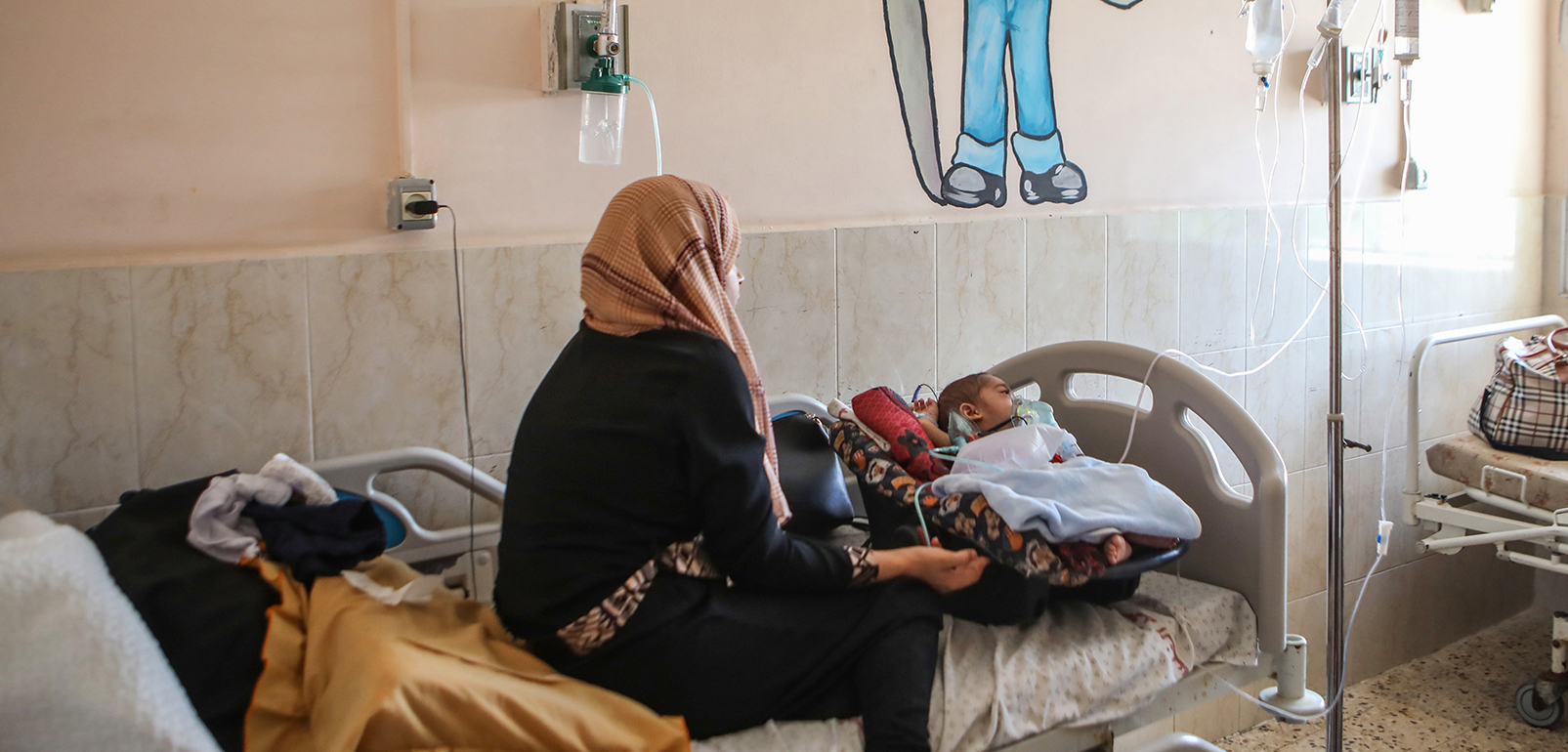 Following suspension of permit processing and coordination, Palestinian patients face additional difficulties to accessing healthcare. Before March, there were more than 1,750 permit applications each month for Gaza patients and more than 7,000 permit applications each month for West Bank patients, though this number reduced drastically during the COVID-19 outbreak. Patients need permits to reach health services in different parts of the occupied Palestinian territory, with the majority needing access to East Jerusalem. Almost a third of applications are for cancer patients; others require specialized surgeries, diagnostic imaging, cardiology, or other services otherwise unavailable. Overall, this group of patients is very sick, with their probability of survival at six months from first permit application less than 90%.
Following suspension of permit processing and coordination, Palestinian patients face additional difficulties to accessing healthcare. Before March, there were more than 1,750 permit applications each month for Gaza patients and more than 7,000 permit applications each month for West Bank patients, though this number reduced drastically during the COVID-19 outbreak. Patients need permits to reach health services in different parts of the occupied Palestinian territory, with the majority needing access to East Jerusalem. Almost a third of applications are for cancer patients; others require specialized surgeries, diagnostic imaging, cardiology, or other services otherwise unavailable. Overall, this group of patients is very sick, with their probability of survival at six months from first permit application less than 90%.
Waseem is 25 years old and has a congenital heart problem. He is from Beit Lahia in the north of Gaza Strip.
21 June 2020
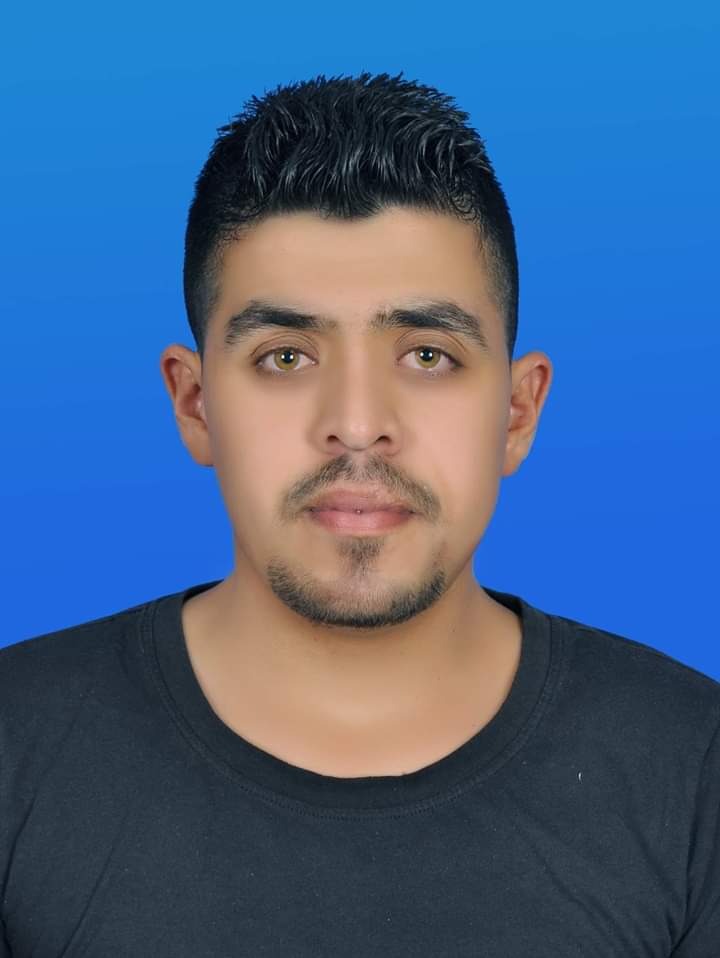 Waseem was born with a congenital heart problem that involved the narrowing of one of his heart valves. When he was a child, he underwent treatments including a procedure to dilate the valve and open-heart surgery. The surgery was effective at that time, and Waseem finished school and went onto graduate from Al-Azhar University in business administration in 2018.
Waseem was born with a congenital heart problem that involved the narrowing of one of his heart valves. When he was a child, he underwent treatments including a procedure to dilate the valve and open-heart surgery. The surgery was effective at that time, and Waseem finished school and went onto graduate from Al-Azhar University in business administration in 2018.
In March 2018, however, Waseem noticed general tiredness and had difficulty breathing. Investigations at Shifa Hospital revealed that the same heart valve was not working properly. He was referred to Makassed Hospital in East Jerusalem and had further surgery there in April 2018. After he returned to Gaza, he suffered complications of his surgery with an infection in the heart. He was treated in the intensive care unit at Shifa Hospital in Gaza City where he stayed for approximately six weeks, until his condition stabilized. Waseem attended several follow up assessments at Makassed Hospital after his health had improved, the last of which was on 3 February 2020.
On 14 April 2020, Waseem was admitted again to Shifa Hospital with infection in his heart and stayed as an inpatient again for almost two months.
Now he has been referred urgently to Makassed Hospital for further surgery that is unavailable in Gaza. He had an appointment on 15 June 2020, but since the suspension of permit processing and coordination between Palestinian and Israeli authorities he has been unable to obtain a permit to exit.
Frustrated, Waseem discharged himself from Shifa Hospital. He said, “I’m tired of hospitals. I need to be in a calm environment and the doctors have agreed that I can receive antibiotics at home for now.”
===
Azmi is a 52-year-old man from Deir Al-Balah in the Gaza Strip, who was recently diagnosed with a cancer called a cholangiocarcinoma.
21 June 2020
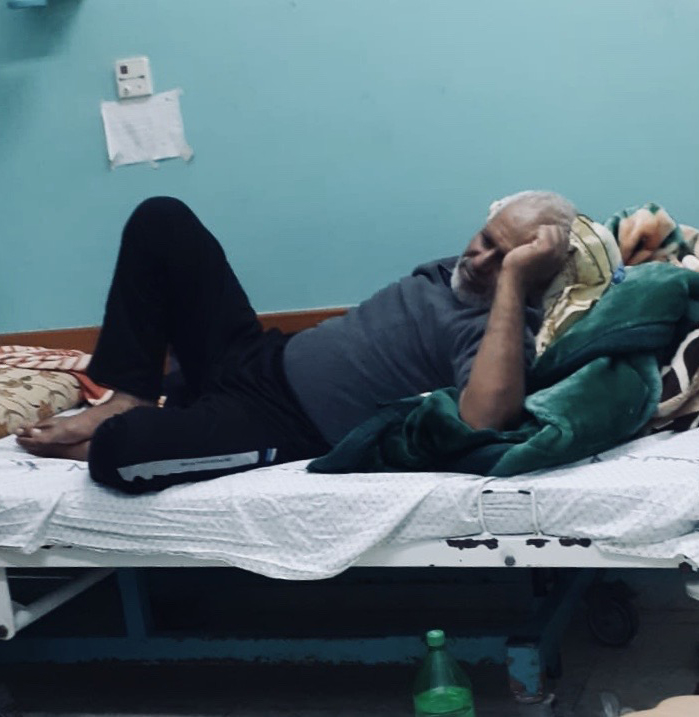 He was admitted to hospital on 18 May with pain and jaundice. Subsequent investigations showed that the cause of his symptoms was a cancer in his bile duct, and he had an initial intervention to remove obstruction of the duct by the tumour.
He was admitted to hospital on 18 May with pain and jaundice. Subsequent investigations showed that the cause of his symptoms was a cancer in his bile duct, and he had an initial intervention to remove obstruction of the duct by the tumour.
Doctors at Shifa Hospital needed to understand the extent of spread of the tumour, in order to plan for the most effective treatment course. Azmi was referred for a PET scan and surgery in East Jerusalem. He had an appointment on 15 June at Makassed Hospital in Jerusalem.
In the context of Israel’s closure of the Gaza Strip, Palestinian patients must apply for Israeli permits to access healthcare in other parts of the occupied Palestinian territory. However, following the suspension of permit processing and coordination between Palestinian and Israeli authorities, Azmi was unable to find any means to apply for a permit to exit.
After missing his first appointment at Makassed Hospital, his family request another referral and he received an appointment for 22 June.
Azmi’s son Alaa commented, “We went to the Coordination Office to apply for my father, but I was told they stopped contact with Israeli authorities. Then we went to the Palestinian Centre for Human Rights, but they told me that they cannot help as well. We have an appointment for the 22nd, but we are trapped and there is no way for us to exit.”
Azmi is a father and used to work as a laborer. He is currently waiting at home with no means to access the healthcare he needs.
===
Osama is a one-year-old child from Gaza City, who was diagnosed with leukaemia on 8 June 2020.
21 June 2020
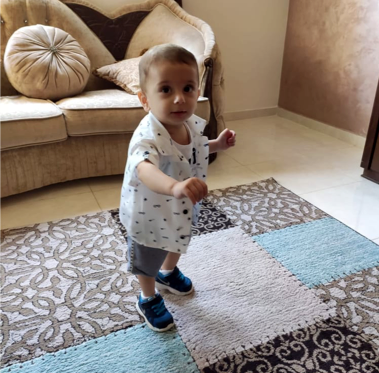 He was referred urgently to Augusta Victoria Hospital in East Jerusalem for specialized investigations unavailable in Gaza and to initiate treatment. In the context of Israel’s closure of the Gaza Strip, Osama needed an Israeli-issued permit to exit. However, following the suspension of permit processing and coordination between Palestinian and Israeli authorities, Osama’s family had no means to apply for a permit to exit.
He was referred urgently to Augusta Victoria Hospital in East Jerusalem for specialized investigations unavailable in Gaza and to initiate treatment. In the context of Israel’s closure of the Gaza Strip, Osama needed an Israeli-issued permit to exit. However, following the suspension of permit processing and coordination between Palestinian and Israeli authorities, Osama’s family had no means to apply for a permit to exit.
Osama’s father commented, “My wife and I couldn’t believe that our child has leukaemia. But on top of that the treatment he needs isn’t available here in Gaza and we were told there was no way to coordinate a permit for him.”
On 11 June 2020, after the family faced several difficulties, Augusta Victoria Hospital was able to coordinate a permit for his exit, and he reached the hospital the same day.
Osama was separated from his mother when he traveled, even though he was still breastfeeding. Instead, he was accompanied by his grandmother, as the family was warned that his mother might not be approved a permit on time because of her age. The medical team at Augusta Victoria Hospital reported his severe distress for days after his separation.
Augusta Victoria Hospital managed to obtain a permit for Osama’s mother to travel to replace his grandmother as companion. Osama’s mother travelled to East Jerusalem on 17 June 2020.
His father commented, “We were told he is crying most of the time. Someone from the hospital has contacted me to try to coordinate a permit for Osama’s mother to travel and be close to him.”
===
Mira is a 4-year-old girl from Khan Yunis.
11 June 2020
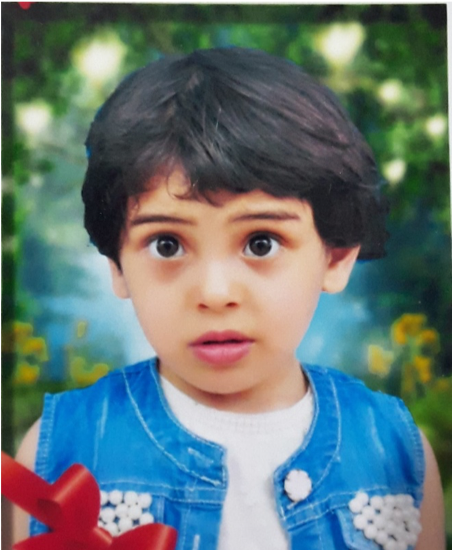 She was diagnosed with a cancer in her eye known as a retinoblastoma in February this year, and now she needs an Israeli-issued permit to reach a hospital in Jordan to have specialist eye surgery that is not available for her in the occupied Palestinian territory.
She was diagnosed with a cancer in her eye known as a retinoblastoma in February this year, and now she needs an Israeli-issued permit to reach a hospital in Jordan to have specialist eye surgery that is not available for her in the occupied Palestinian territory.
Mira has lost vision in her right eye and needs surgery urgently to prevent spread of her tumour, and to prevent any further loss of vision. She had an appointment at the Jordan Hospital in Amman for 4 June, but she missed this appointment because her family was unable to find a means of coordinating her permit after end to the functioning of the Palestinian Coordination Office.
Mira’s mother commented, “I fear losing my daughter because we have been unable to get help from anyone.”
Mohammed, 36 from Gaza City, was diagnosed with a brain tumour known as a glioblastoma in February this year.
17 June 2020
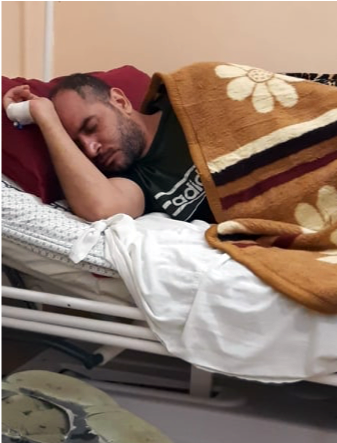 After surgery in February in Gaza, Mohammed was referred for adjuvant radiotherapy and chemotherapy at Augusta Victoria Hospital in East Jerusalem. This treatment that has been shown to lengthen the survival of patients with glioblastoma, but radiotherapy facilities are not currently available in the Gaza Strip. Mohammed’s first appointment was at Augusta Victoria Hospital on 20 April, but he needed an Israeli-issued permit in order to exit the blockaded Gaza Strip and reach the hospital. His permit application was denied.
After surgery in February in Gaza, Mohammed was referred for adjuvant radiotherapy and chemotherapy at Augusta Victoria Hospital in East Jerusalem. This treatment that has been shown to lengthen the survival of patients with glioblastoma, but radiotherapy facilities are not currently available in the Gaza Strip. Mohammed’s first appointment was at Augusta Victoria Hospital on 20 April, but he needed an Israeli-issued permit in order to exit the blockaded Gaza Strip and reach the hospital. His permit application was denied.
Since that time, Mohammed made four further applications. In total, three of his applications have been denied by Israeli authorities on alleged security grounds and one has been delayed, with no definitive response by the date of his hospital appointment.
Following the coordination suspension of permit applications to Israeli authorities on 19 May, Mohammed applied through the Palestinian Centre for Human Rights (PCHR). His application was denied on 7 June. On 9 June, PCHR withdrew from coordinating permits, after which Mohammed struggled to find an alternative means to reapply. On 11 June, Augusta Victoria Hospital, where he was attempting to reach, finally obtained a permit on Mohammed’s behalf for him to travel out of Gaza. Initially, his companion was not approved a permit approved to accompany him. However, Mohammed was severely incapacitated by this stage and unable to travel alone.
The dates and outcomes of Mohammed’s permit applications
|
Date of appointment (2020) |
Outcome of permit application |
|
20 April |
Denied |
|
4 May |
Delayed: no response by appointment date |
|
19 May |
Denied |
|
7 June |
Denied |
|
11-12 June |
Approved |
Salma is 64 years old, from the Middle Area of the Gaza Strip.
11 June 2020
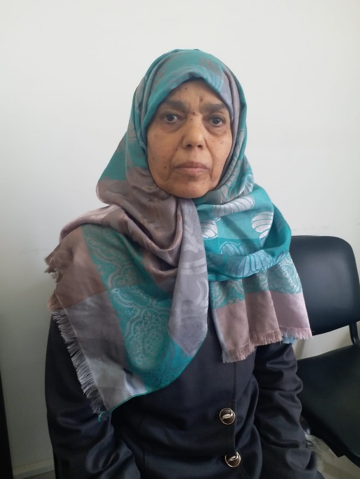 She has Hodgkin lymphoma and needs an Israeli-issued permit to access healthcare outside of Gaza, in the West Bank, to undergo treatment which would involve transplanting her own stem cells. The treatment could cure her disease, and it is unavailable in the Gaza Strip.
She has Hodgkin lymphoma and needs an Israeli-issued permit to access healthcare outside of Gaza, in the West Bank, to undergo treatment which would involve transplanting her own stem cells. The treatment could cure her disease, and it is unavailable in the Gaza Strip.
After postponing her initial appointment during the COVID-19 outbreak and having a subsequent permit application delayed by Israeli authorities, receiving no response by the date of her appointment, Salma received a further hospital appointment to undergo her transplant on 7 June. When she went to obtain a permit to access the treatment she needs, she was told that the Coordination Office in Gaza was no longer liaising with Israeli authorities to apply for permits. Luckily for Salma, at this stage she was able to apply for a permit through the Palestinian Centre for Human Rights and she obtained a permit to travel on 7 June. However, since 9 June the Palestinian Center for Human Rights discontinued its legal aid services to patients after a news report in Israeli media was released suggesting that Israel has reached an alternative coordination mechanism with Gaza through the human rights organization. At this stage, even urgent and lifesaving cases are being affected by the lack of any coordination mechanism.
Patients like Waseem, Azmi, Osama, Mira, Mohammed, and Salma have no current means to obtain Israeli-issued permits to access the healthcare they need. An urgent solution is needed to safeguard patient access and protect the fundamental rights of Palestinian patients.
Related links:
Right to Health: Patients in the Gaza Strip unable to access healthcare








